人类世背景下动植物关系研究高级培训班(AC-PAIA 2022)第一轮通知
人类世背景下动植物关系研究高级培训班(AC-PAIA 2022)
Advanced Course on Plant-Animal Interactions in the Anthropocene (AC-PAIA 2022)
(第一轮通知 First announcement )
2022年11月19日-12月10日
19th Nov to 10th Dec 2022
中国科学院西双版纳热带植物园
Xishuangbanna Tropical Botanical Garden (XTBG)
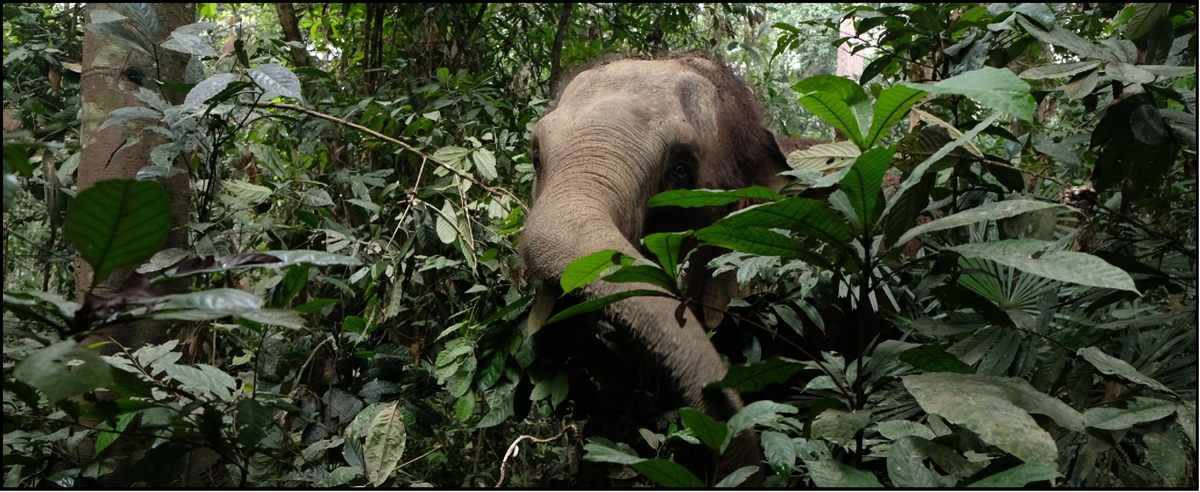
人类世背景下动植物关系研究高级培训班(AC-PAIA 2022)是针对学术技能和研究方法的强化培训,主要面向来自中国和热带亚洲的研究生和青年学者,提供理论和实践培训,以提高青年科学家的研究能力和信心、促进独立思考、提高解决问题的思维,建立青年科学家的区域性合作网络,并在全球环境变化背景下促进动植物关系研究领域的国际合作。
The Advanced Course on Plant Animal Interactions in the Anthropocene (AC-PAIA 2022) is an intensive course in academic skills and research methods, intended primarily for early-stage graduate students and young scholars from China and Tropical Asia, providing training in theory and practice, improving research ability and confidence in young scientists, promoting independent and problem-solving thinking, cultivating young talent, fostering a regional network of young scientists, and promoting international cooperation in the field of plant-animal interactions in the context of global environmental change.

培训班由国际科学组织联盟(ANSO)主办,西双版纳热带植物园(XTBG)承办。
Training course organized and hosted by Xishuangbanna Tropical Botanical Garden (XTBG) and sponsored by the Alliance of International Science Organizations (ANSO).
课程结构和内容 Course structure and contents
课程为期三周,分为四个模块,内容如下:
1.理论:全球环境变化下的食果动物与种子散布、传粉过程、植食性昆虫、植物繁殖生物学及动植物相互作用;包括基本概念和前沿进展,特邀十几位世界知名科学家通过在线形式授课。
2.研究方法:研究设计、数据收集和数据分析相关的各种方法,包括种子跟踪法、相机陷阱调查法、动物遥测、同位素跟踪、功能特征、网络分析、空间建模、化学生态学等。
3.实地考察:西双版纳补蚌生态站。
4.独立研究项目:由学生分组进行。
The course lasts three weeks and is structured in four modules with the following contents:
1. Theory: frugivory and seed dispersal, pollination, herbivory, plant reproduction biology, plant-animal interactions in the contexts of global environmental change and conservation; including both fundamental concepts as well as frontier advances, delivered by of a dozen of world well-known scientists via on-line lectures.
2. Research techniques: different aspects of study design, data collection, and data analysis, including seed tracking, camera-trapping, animal telemetry, isotope-tracking, functional traits, network analyses, spatial modeling, chemical ecology, among others.
3. Field visit: Bubeng Ecological Station, Xishuangbanna.
4. Independent research project: to be carried out by students in small groups.
培训形式 Delivery format
培训班将同时通过线下培训和在线报告形式进行。目前在中国的申请人可以申请参与线下或在线学习,而目前在其他国家的申请人只能申请在线学习。在线的参与者可以学习前两个模块(理论和研究方法),无法参与实地考察和独立研究项目。
AC-PAIA 2022 will be run onsite and online, simultaneously. Applicants currently physically in China can apply for onsite or online study, while applicants currently physically in other countries can only apply for online study. Online participants will have access to the first two modules (theory and research techniques) but will not participate in the field visit nor carry out the independent research project.
培训语言:英语
Training language: English.
培训对象 Target students
该课程的培训对象是研究动植物关系相关方向的研究生和青年学者,以中国和热带亚洲地区学员为主,同时也欢迎其他地区的学员报名。招募参与线下全程培训的学员约25人,仅参与在线培训的学员上限为40人。
The course targets early-stage graduate students and young scholars working on different aspects of plant-animal interactions, main from China and Tropical Asia (although participants from other regions are also welcome). The number of onsite full-time study participants is ~25, and the number of online participants will be capped at 40.
主要培训专家 Key training experts
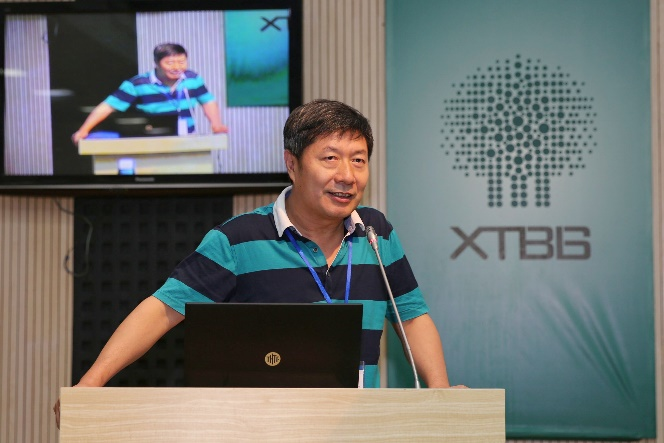
陈 进
Jin CHEN
博士生导师,中国科学院西双版纳热带植物园研究员,中国植物园联合保护计划常务副理事长,中国科学院西双版纳热带植物园环境教育中心首席科学家,中国科学院西双版纳热带植物园动植物关系研究组组长,曾任中国科学院西双版纳热带植物园主任(2005-2021)。主要研究方向:动植物相互作用的生态学和进化、环境/科学教育和保护生物学,在Cell, Nature Communications, Ecology, Environmental Education Research等国际期刊上发表论文100余篇。
PhD supervisor, researcher of Xishuangbanna Tropical Botanical Garden, Chinese Academy of Sciences (XTBG), executive vice president of Initiative for Collective Conservation in Chinese Botanical Gardens, chief scientist of Environmental Education Center, XTBG, principal investigator of Ecology & Evolution of Plant-Animal Interaction group, XTBG. He was director of XTBG (2005-2021). Main research directions: The ecology and evolution of plant-animal interactions, environmental/science education, and conservation biology, has published more than 100 papers in international peer-reviewed journals such as Cell, Nature Communications, Ecology, and Environmental Education Research.
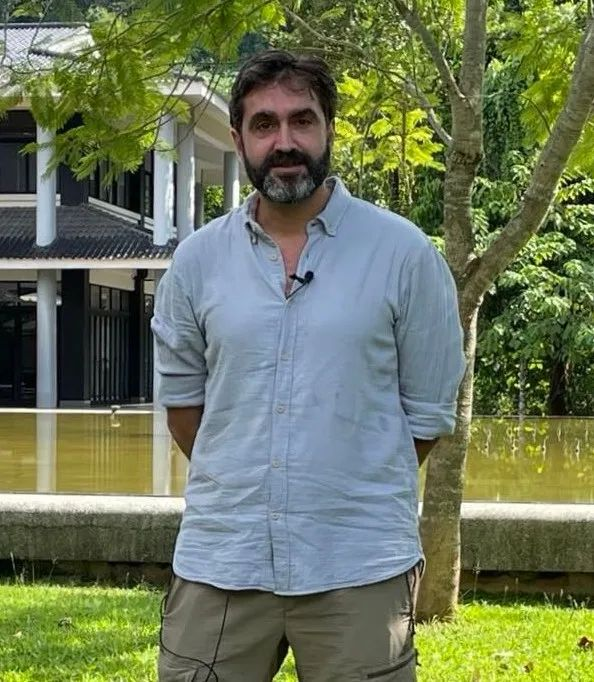
Ahimsa Campos-Arceiz
中科院西双版纳热带植物园大型兽类多样性与保护研究组组长,主要从事大型兽类的生态学和保护探究,特别是探索它们在生态系统过程中的作用(如种子传播)、人类与野生动物冲突、保护能力建设、保护决策和实践循证方法等。他曾担任《Global Ecology and Conservation》《Integrated Zoology》《Current Conservation》等国际学术期刊编委,发表SCI论文80余篇。
Professor Ahimsa Campos-Arceiz, PI at the Megafauna Ecology and Conservation Group of XTBG. His research expertise is on the ecology and conservation of large mammals, specifically on understanding their roles in ecosystem processes (e.g., seed dispersal) and promoting human-wildlife coexistence with animals that are prone to conflicts, such as elephants. He is also interested in capacity building and evidence-based approaches to conservation decision-making and practice. He served as a member of the editorial board of international academic journals such as Global Ecology and Conservation, Integrated Zoology, and Current Conservation, and has published over 80 SCI papers.

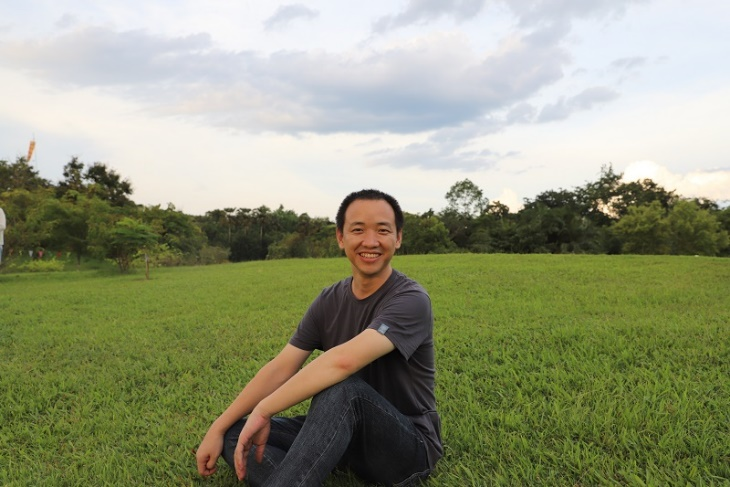
王刚
Gang WANG
中国科学院西双版纳热带植物园 研究员,博士生导师, 快速进化与保护青年科学家小组组长。2013年于版纳植物园获得博士学位并工作至今。研究工作重点关注动植物协同进化和杂交渐渗对物种多样性形成、维持和未来适应的影响。代表成果以第一或通讯作者(含共同)在Cell, Nature Communications,Current Biology,Ecology,Proceedings of the Royal Society B-Biological Sciences,Annals of Botany 等期刊发表。
Gang WANG is Professor and PI of the Xishuangbanna Tropical Botanical Garden, CAS. He got PhD degree in 2013 from XTBG and work there since then. His work continually focuses on understanding how plant-animal coevolution and hybridization facilitating the origination, maintain and future adaptation of biodiversity. Many of his work conducted with the fig-fig wasp system. Part of his work published in journal like, Cell, Nature Communications, Current Biology, Ecology, Proceedings of the Royal Society B-Biological Sciences, Annals of Botany etc.

Lisa Ong
研究领域:哺乳动物与植物之间的相互作用。她的工作主要基于马来西亚的热带雨林,那里的森林大型动物和完整的高度多样化的植物类群使我们对热带森林群落有了很好的了解。她还与当地土著居民密切合作,探究食果动物和种子散布网络相互作用,并与大象保护区和野生动物部门的驯象员合作,以了解食草动物生态学和亚洲象的影响。
Lisa Ong is a researcher specializing in plant-animal interactions by mammals. Her work is based mainly in the rainforests of Malaysia, where the presence of forest megafauna and intact hyper-diverse flora enabled a good understanding of the tropical forest communities. She had also worked closely with the local indigenous people to gather expert knowledge of frugivory and seed dispersal network interactions, and the mahouts of the elephant sanctuary and wildlife department to understand the herbivory ecology and influence of the Asian elephants.

Kyle W. Tomlinson
中国科学院西双版纳热带植物园群落生态与保护研究组组长,主要研究方向为景观保护、森林生态、稀树草原生态、植物功能性状多样性,如了解植物功能和生长对干扰和资源的响应,以及这如何影响景观内和景观间的物种分布。自2020年起,担任《Journal of Ecology》副主编。
Professor Kyle W. Tomlinson, PI at Community Ecology and Conservation Group of XTBG, working on landscape conservation, forest ecology, savanna ecology, and functional trait diversity,such as understanding plant function and growth in response to disturbances and nature resources, and how it affects species distribution within and across landscapes. He has acted as the associate editor of Journal of Ecology from 2020.

Richard Corlett
中国科学院西双版纳热带植物园荣誉教授,曾在版纳植物园担任研究员9年,退休后定居伦敦。2014年联合国政府间气候变化专门委员会(IPCC)第二工作组(WGII)亚洲章节报告和2018年生物多样性和生态系统服务政府间科学-政策平台(IPBES)亚太区域生物多样性评估报告的主要作者。已发表学术论文250多篇,出版多部著作,如《Ecology of Tropical East Asia》(第三版,2019年)。曾担任《Global Ecology and Conservation》的主编,并担任《Biological Conservation》《Ecology》等诸多国际学术期刊的编者。
Richard Corlett was a Professor at XTBG for 9 years and is now an Emeritus Professor living in London. He was a lead author for the Asia chapter of the 2014 IPCC Working Group 2 report and for the 2018 IPBES Asia-Pacific assessment. He has published more than 250 academic papers and several books, including the Ecology of Tropical East Asia (3rd edition, 2019). He was previously chief editor of Global Ecology and Conservation and has also had editorial roles in Biological Conservation, Ecology, and several other international journals.

王博(安徽大学)
Bo WANG
毕业于中国科学院西双版纳热带植物园,现任职于安徽大学。主要研究方向包括:1)动植物关系,尤其是啮齿动物对植物种子的捕食和散布;2)植物果实和种子性状的生态和进化格局,例如果实类型、种子的物理和化学防卫性状等。近年来,以在Ecology, Oikos, Oecologia, and Ecography等生态学主流期刊发表多篇论文。
He got his Ph. D in Ecology in Xishuangbanna Tropical Botanical Garden, and now works in Anhui University as a full professor. He focuses his research on 1) plant-animal interaction, especially seed dispersal and predation by scatter-hoarding rodents; and 2) ecological and evolutionary patterns of seed/fruit traits, such as fruit type, physical and chemical defenses in plant seeds. He has published academic papers in such authoritative journals as Ecology, Oikos, Oecologia, and Ecography, etc.
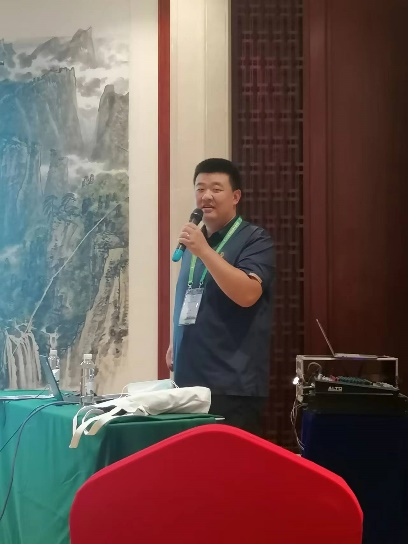
王嵘(华东师范大学)
Rong WANG
现任华东师范大学生态与环境科学学院教授。主要研究方向为种间关系的维持机制及其对环境变化的响应。目前已取得以下主要成果为:(1) 发现人类干扰通过影响生态系统下行调控改变种间关系;(2) 利用分子与生态学数据揭示了专性传粉关系的维持机制; (3) 结合多组学分析与分子生物学技术阐明了专性传粉昆虫和植物相互适应的分子机制。基于以上科研成果,以第一或通讯作者发表论文20余篇,其中多篇发表于Nature Ecology and Evolution、Trends in Ecology and Evolution、Ecology、 Proceedings of the Royal Society B: Biological Sciences、Molecular Ecology等重要学术期刊。主持国家级项目3 项,2021年入选国家级青年人才计划。
Rong WANG, professor in School of Ecological and Environmental Sciences, East China Normal University. My core research direction is to study the mechanisms maintaining interspecific interactions. The main achievements include: (1) detecting how human disturbances affect interspecific interactions via altering the top-down regulation in ecosystems; (2) uncovering the ecological mechanisms maintaining the obligate mutualisms between Ficus species and their pollinating wasps by the combination of ecological surveys and molecular markers; and (3) revealing the molecular mechanisms underlying the coadaptation between plants and their pollinating insects. In my study area, I have published 20 research articles where I was listed as the first or the corresponding author. Some key studies have been published in Nature Ecology and Evolution, Trends in Ecology and Evolution, Ecology, Proceedings of the Royal Society B: Biological Sciences, and Molecular Ecology. Moreover, I have been in charge of three national projects and funded by a talent program of China.
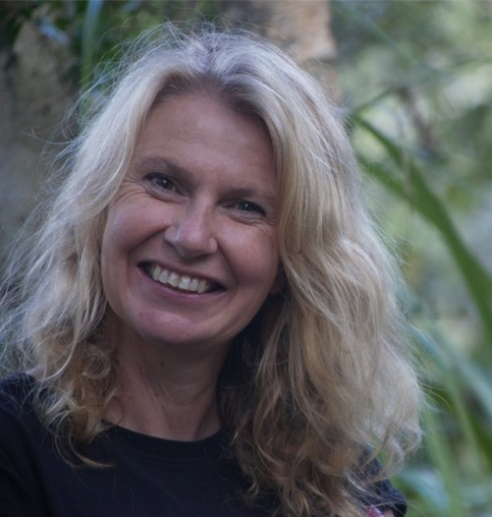
Kim MacConkey(独立研究者)
Kim McConkey博士从事亚洲和太平洋地区热带雨林动植物关系研究已超过20年。她的研究重点针对多种哺乳动物(如长臂猿、蝙蝠、豪猪等)的食果动物和种子散布相互作用,研究范围跨越印度尼西亚、马来西亚、泰国和汤加。Kim博士一直以来关注种子散布网络,从植物和动物的角度研究群落水平的相互作用、种子散布有效性(SDE)以及种子捕食。
Kim McConkey has been conducting research on plant-animal interactions in the tropical rain forests of Asia and the Pacific for more than 20 years. The focus of her research has been on frugivory and seed dispersal interactions on a large range of mammals, including gibbons, bats, porcupines and megafauna, and across Indonesia, Malaysia, Thailand and Tonga. Kim has been involved in research on seed dispersal networks to investigate community-level interactions, seed dispersal effectiveness (SDE) from plant and animal perspectives and has conducted studies on seed predation.
国际客座老师的名单将于后续公布。
The list of international guest lecturers will soon be announced.
培训费用和奖学金 Fees, costs, and scholarships
课程费用:免费。
交通与食宿:参与线下课程的学员需自行承担往返版纳植物园的交通费用、部分餐费(每人每天100元)和住宿费(高级标间:每晚380元;经济标间:每晚320元;与他人同住可以节省支出);培训期间的食宿由培训班统一安排,超出以上标准的费用由培训班承担。
奖学金:培训班提供少量奖学金名额,用于支付食宿费用,仅限全程参与线下培训的学员申请。培训班将根据奖学金申请表,优先支持成绩优异同时经济能力有限的申请人。
Course fee: the course is free; no fee will be charged.
Traveling, meals, and accommodation: onsite participants will bear the full cost of their own traveling to and from XTBG and the partial cost of their meals (RMB 100 per day) and accommodation (RMB Luxurious room: RMB 380 per night; economic room: RMB 320 per night; sharing room with others can significantly reduce the costs), which will be arranged and partially subsidized by XTBG.
Scholarships: the course organizer has budget for some scholarships (see the application form for details) to cover food and accommodation. Scholarships will be awarded based on both merit and financial needs and only for full-time onsite participants.
报名及培训证书 Registration, certificate and credits
报名链接:https://www.wjx.top/vm/mjUKtAa.aspx
报名截止时间:2022年10月10日15:00(UTC+8)
培训证书:培训班提供两种学习模式,即全日制学习和旁听,学员可以根据自身情况选择其中一种方式。(1)全日制学习要求学员全程参与线下3周培训并完成独立项目,将有机会获得培训证书;(2)旁听不要求学员全程参与,可根据自己的时间和兴趣听课,不颁发培训证书,只出具上课证明。
Registration form: https://www.wjx.top/vm/mjUKtAa.aspx
Registration deadline: 15:00 h, October 10, 2022 (UTC+8)
Training certificate: we will offer two kinds of study positions which are full-time study and part-time study. You can choose either of them according to your time and interest. (1) Full-time study requires you to participate in the whole process of 3-week study and complete independent project (you will have the chance to get the training certificate). (2) Part-time study does not require you to participate in the whole process. You can choose courses that you are interested in (you will not get a training certificate, but a certificate of attendance).
联系人 Contact
杨玺(邮箱:yangxi@xtbg.org.cn, 办公电话:0691-8713331)
For more details contact Ms Xi YANG
Email: yangxi@xtbg.org.cn Tel: (+86) 691-8713331













